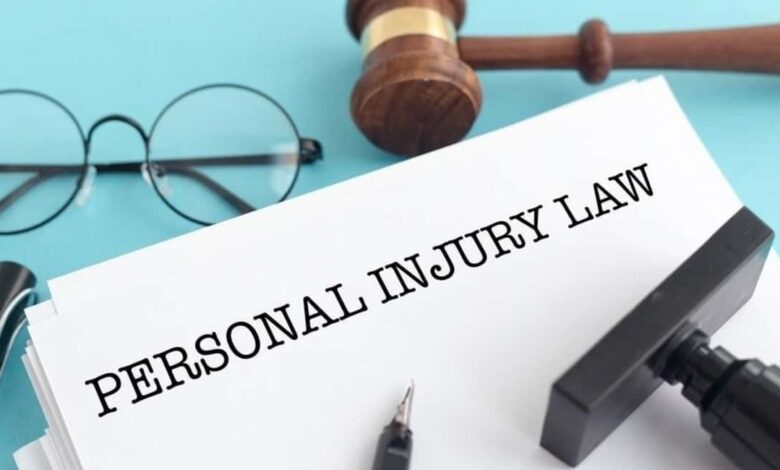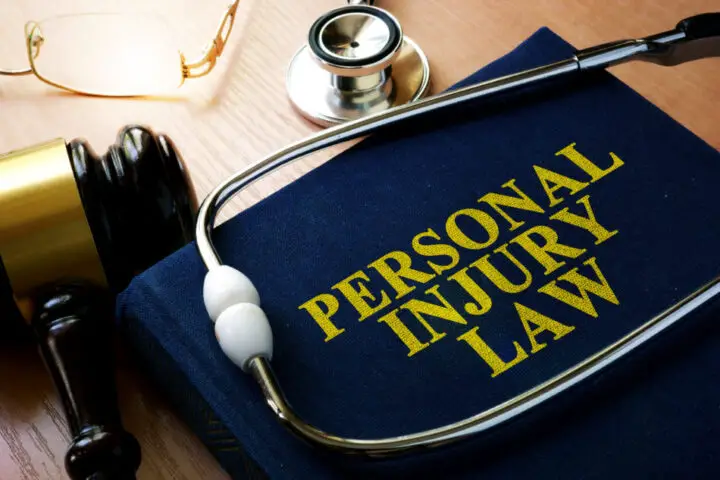Your Guide to Personal Injury Lawsuits

Life is unpredictable. Days, weeks, and months may peacefully pass by without any serious incidents whatsoever as you go about your usual business, and then, out of nowhere, without any warning, you can suddenly find yourself falling victim to an unexpected injury or accident that leaves you physically or mentally harmed.
On the roads, at work, or even while out and about enjoying a casual day with family and friends, disaster can strike when we least suspect it, and statistics show that countless people suffer personal injuries each and every year, turning to the assistance and guidance of personal injury lawyers to see them through the process.
However, as a lot of people don’t have much experience in working with lawyers and dealing with the many responsibilities and consequences that can come along with legal cases, many of them feel intimidated, overwhelmed, and confused by the whole process, unsure where to start or who to turn to.
Knowing more about how personal injury lawsuits work can help you feel more confident and far better prepared to handle your own case, if and when it occurs. This guide will take a look at some common questions and answers regarding personal injuries, explaining how lawsuits function, how long they can take, what sort of payout you can expect, and so on.
What Is a Personal Injury Lawsuit?

Personal injury lawsuits occur when one person suffers some form of harm or damage due to the negligence, recklessness, or inaction of another party. The intent of the lawsuit is to obtain financial compensation to the injured party to cover medical bills, damages from pain and suffering, loss of income, and other expenses caused by the accident or injury.
How Do Personal Injury Lawsuits Happen?
The specifics of any personal injury lawsuit can vary from case to case, but they usually tend to follow a set pattern of steps:
- To begin with, any personal injury case needs to be focused on some kind of injury. This is the root of any lawsuit, and it can happen in a variety of ways, situations, and places. Someone may get injured at work, on the road, or elsewhere, and then choose to contact an attorney if they feel that their losses or ‘damages’ in legal terms are significant enough to pursue a personal injury lawsuit.
- Next, after consulting with an attorney and determining that a legitimate case for a lawsuit exists, the plaintiff can take the next step of asking their attorney to file an official personal injury complaint in the correct court. This is the very first document of the case and essentially serves as a summary of what the plaintiff claims have happened. This complaint will also need to be ‘served’ to the defendant, which means that it must be physically delivered to them in a verifiable way so that they can’t claim to have been unaware of the matter later on.
- Usually, the defendant will then decide to hire their own attorney and start to put together their own defense in anticipation of a court date. If insurance policies are involved in the matter, the defendant will also need to get in touch with their insurance provider, who will be able to appoint and pay for a lawyer if the defendant hasn’t already got one of their own.
- Next, the pre-trial phase begins, in which both sides can demand evidence, witness statements, and so on in order to build their arguments and potentially agree on the mediation of some kind. Both sides will also have opportunities to make depositions, and this process can take quite a long time, potentially leading up to a trial, a settlement, or the case being thrown out.
- If the case hasn’t been settled during the pre-trial or discovery phase, it may end up going to court, although the vast majority of personal injury cases get settled earlier on. In court, a judge and jury will hear the arguments and make a decision on the case regarding whether or not the defendant is at fault and how much they have to pay out in damages to the plaintiff. After this, depending on the conclusion of the trial, either party can pursue appeals processes.
How Long Do Personal Injury Lawsuits Take?

There’s no definitive answer to this question, as the simple fact of the matter is that the time taken for one personal injury case can be very different from the next. Some cases are resolved relatively quickly when the situation is quite clear and obvious to see, whereas others can take months or even years to resolve due to lengthy appeals, depositions, and trials.
As explained by Gomez Attorneys, “The personal injury claims process can be confusing and time-consuming. But by hiring the right legal team, you can speed this process up and give yourself the best chance of collecting every dollar you deserve for your injuries.”
Top Tips for a Successful Personal Injury Lawsuit

The first step towards a successful personal injury lawsuit is making sure you contact a lawyer as quickly as possible. They’ll be able to guide you through the remainder of the process and provide you with the answers to your questions and the assistance you need along the way.
It’s also important to be careful who you talk to. After a personal injury, it’s only natural that you’ll want to talk with your friends, family, colleagues, and other acquaintances about the situation. However, it’s important to be very careful in terms of who you talk to and what you say, and even posting something about the case on social media can have big consequences.
You should also make sure that your first priority after an accident or injury should be to visit your local doctor or hospital and getting the medical aid you need. Injuries need to be diagnosed and treated with proper care and consideration, and failing to get yourself checked out could lead to a range of further complications down the line.
Final Word
Countless people get injured every day, and in many of those situations, the fault lies at someone else’s door. Don’t let yourself suffer in silence if an accident happens; contact a lawyer and get the help you need to pursue justice and compensation.
